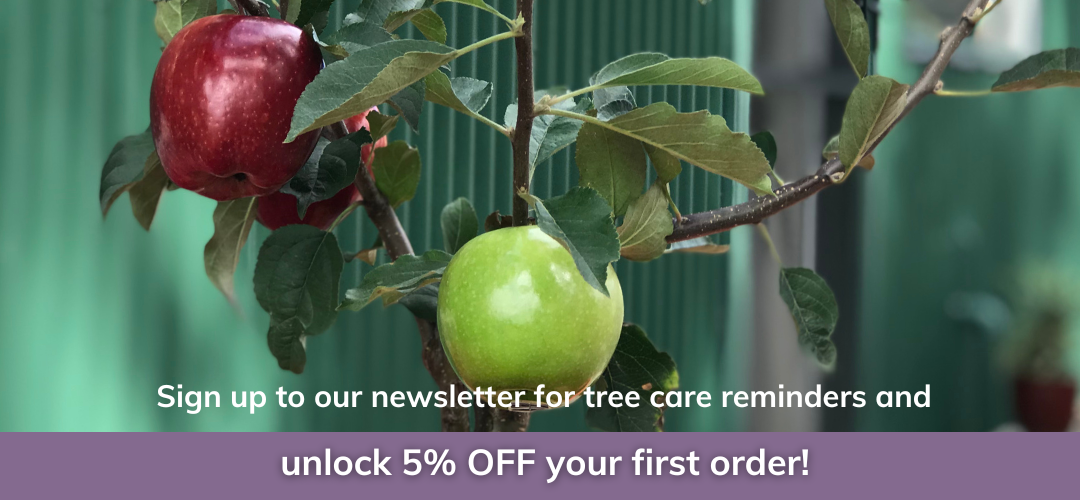



Cottony Cushion Scale are sap sucking insects that excrete a honeydew, which coats infected plants and promotes the growth of dark fungi or Sooty Mold. This sweet sticky substance also attracts ants which feed on the honeydew. Heavily infested plants can drop fruit prematurely, but any infestation can stress your fruit salad tree if untreated.
Plant Part: Leaves and Stems
Season: Spring/Summer
Symptoms: Females with white egg sacks are visible on leaves and stems in summer. Small black soot like substance found on the leaves and branches. Ants usually accompany the infestation.
Control:
Biological control: Lady beetles are highly effective in controlling cottony cushion scale, but they are also quite susceptible to pesticides, so if you are using pesticides, you probably wont have many of these around. A parasitic fly, Cryptochaetum iceryae, has been introduced in Australia and is effective against cottony cushion scale if adequate populations are present in your area.
Chemical control: Several insecticides are labeled for control of scale would be an effective control measure. You can also use white oil (made from vegetable oils), soap solution, or horticultural oil (made from petroleum), and spot spray effected areas.
Physical control: Depending on the infestation size, manual removal would be a clean environmentally friendly control option.
Note: By removing the Cottony Cushion Scale, the sooty mold will eventually dry and flake off.
Prevention: Keeping your tree orchard clean: remove old fruit and branches as these attract and harbour pests. Keep your orchard free of weeds and encouraging beneficial pollinators and insects like bees, parasitic wasps, ladybirds and hoverflies to your garden will keep these pests at bay. Companion planting a few tansy herbs nearby will also deter the ants.
References: Sustainable Gardening Australia, NSW Department of Primary Industries, Citrus Plant Protection Guide 2020, NC State Extension, Pacific Pests, Pathogens and Weeds, and the FST team.
Subscribe to our Care Reminder Newsletter for growing tips, care advice and current specials!
Welcome to Fruit Salad Trees!

We will send you all the tree care advice you need to grow different fruits on one tree and keep the whole household happy!
